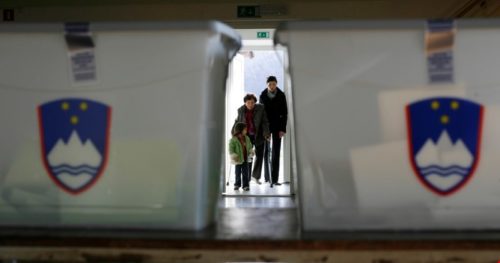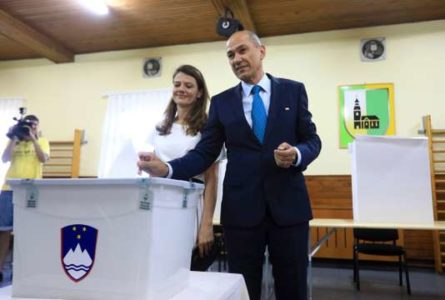That’s the way it is
Some thoughts on the Slovenian elections

Dnevnik.si
Last Sunday the Slovenian citizens went to the polls. A little earlier than expected, but just in time before the summer break. Some commented that it was definitely a good idea, as the current government ended up in splits, arguments and fights. It was the third consecutive snap election, which only shows us how instable and fragile the Slovenian political system is. The strong election winner, but not strong enough to gain the parliamentary majority, was the right wing Slovenian Democratic Party with its long-time leader Janez Jansa. The aforementioned gentleman, who is known for regularly attacking and insulting journalists, especially through social media, can definitely remind us of some actors on the European and international stage.
Indeed, Jansa based his campaign on a complete copy of the previous successful campaigns of Donald Trump, UKIP, Viktor Orban and similar political actors. Despite Slovenia being a small country in Central Europe, it has been a part of the route through which the migration crisis in 2015 escalated. Back then, the Slovenian government intervened by closing the border with Croatia and putting on a barbed wire fence. Jansa’s campaign was based on spreading fear that the migrant wave is not over, that Slovenia took into the country too many migrants and that the current government is not capable to deal with that problem, among many other issues. Jansa is a nationalistic icon of Slovenia and a leader of his party since 1993. He has an army of well-disciplined voters, always played on the nationalistic and populist card, but has now discovered a card that can gain him additional points.
The Slovenian elections, despite ending up more or less expectedly, with a right wing winner and a fragmented political left and centre, provided us three important issues that we need to take into consideration. The first one is that the current fashionable trend within mainstream right and the far right is to play on the card of migration and security. Basically every campaign in Europe since the migration crisis has been using it, including in countries such as Slovenia, which was only used as a route for refugees/migrants towards the more prosperous northern countries. This trend is very dangerous because it can leave long term consequences on the society and certain freedoms, such as the EU freedom of movement, are being put into risk.

The election winner & leader of opposition Janez Jansa (Le Monde/AP Photo)
The second issue is the Hungarian Prime Minister Viktor Orban and his role in the Slovenian elections. It is clear by now that Orban is trying to expand his influence by trying to seek political alliances in his neighbourhood, with likeminded leaders such as Sebastian Kurz and Aleksandar Vucic. He did not miss the opportunity to give support to Jansa, which makes sense as Orban’s Fidesz and Jansa’s SDS are sitting in the same European political family. However, Slovenian media such as Mladina, a well-known left-wing weekly where Jansa used to contribute in his Yugoslav dissident days, wrote about alleged connections with Orban, a good friend of Jansa, in the cases of financial injections or acquisitions of Slovenian right-wing media. The leftist parties then accused Jansa of trying to Orbanise Slovenia, and frequently used the soundbite Orbanisation.
Finally, it is clear now that the European People’s Party, the main voice of the political centre-right in Europe, is definitely becoming more right than centre. When one looks at the situation in Central Europe for instance, there is a completely different line of thought than Angela Merkel. The EPP parties from Bavaria, Austria, Slovenia, Hungary etc. are not alone in their thinking, as even the French Republicans or the parties in Scandinavia, known for moderation, are pushing to the right. Both to respond to the far right parties, and to play on a winning card in these times of insecurity and fear.
